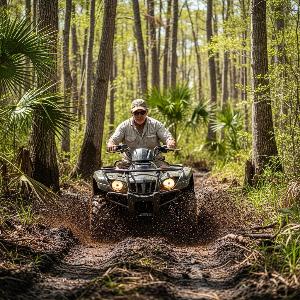While the terms "prepper" and "survivalist" are sometimes used interchangeably, there are some differences in their beliefs and practices:
-
 Focus: Preppers tend to focus on being prepared for natural disasters, economic collapse, or other disruptions in society. Survivalists, on the other hand, tend to focus more on the ability to survive in a wilderness or post-apocalyptic scenario.
Focus: Preppers tend to focus on being prepared for natural disasters, economic collapse, or other disruptions in society. Survivalists, on the other hand, tend to focus more on the ability to survive in a wilderness or post-apocalyptic scenario. -
Lifestyle: Preppers often prepare by stockpiling food, water, and other supplies, as well as learning skills such as gardening, canning, and first aid. Survivalists often focus more on developing self-sufficiency skills such as hunting, trapping, and wilderness survival.
-
Mindset: Preppers may have a more optimistic outlook on the future and seek to prepare for potential disruptions while still hoping for the best. Survivalists may have a more pessimistic outlook and prepare for worst-case scenarios.
-
Community: Preppers often form communities or networks of like-minded individuals to share resources and knowledge. Survivalists may be more individualistic and seek to rely on their own skills and resources.
In summary, preppers tend to focus on being prepared for disruptions in society, while survivalists tend to focus on the ability to survive in a wilderness or post-apocalyptic scenario. The two groups may have different lifestyles, mindsets, and approaches to community building.





